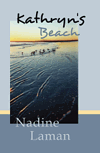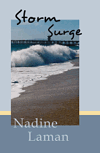Years ago I was one of many moderators on an international writing forum (now closed). During that time, I content edited (for free) a ton of manuscripts.
What happened next was that the writer chose not to pay to have it line edited by a certified proofreader. (I am not a certified proofreader.) For whatever reasons, several of them put their manuscript in the hands of a pay-to-publish company or uploaded them to a free publishing online company.
They proudly sent me a copy of their new book and it was sad to see the poor quality of the end result. The formatting was horrible, the proofing appeared to not have happened at all, and the cover was butt-ugly.
Several of my friends encouraged me to set up a fee-to-publish company, since after all, there were tons of them on the internt, right?
I'm old school enough to value the traditional publishing model. The writer sends a query, someone vets it and likes it, and it goes through a horribly long process to get published. However, it was vetted and selected as worthy to fund.
So using the traditional model Cactus Rain Publishing was created in 2010. Considering the economy at the time, I chose not to get a business loan. It was and still is a pay-as-you go business.
Basically, since it is my money at risk and I have NO ONE to answer to about my decisions, I have total freedom to do as I see fit. We don't have a million books in print, but what we have are exceptionally good.
Sometimes mss are turned down because, well, they are simply horrible. Sometimes I'll suggest that the author aim for a literary agent because their ms is that good.
We go with good writers who need their work dusted and polished a bit, and who are committed to marketing their book. (They would have to market their book with a pay-to-publish service, too.) CRP does some marketing, but the writer has to believe in their work enough to sell it.
Over the years (honestly seems like more than 5 years because of the years of content editing before becoming a business) ... over the years several people have offered to help vet mss because they like to read. Mostly the offer was because they wanted to earn a little extra money. Not one of them finished a whole ms because vetting isn't the same as sitting down and reading a book on a Sunday afternoon.
This is a business, not a charity. The mss have to be properly vetted.
Judith, my friend of 20+ years, came onboard and has been wonderful to work with. She checks out the mss before I do. That saves me so much time. We are a fantastic team. info@cactusrainpublishing.com
Judith, my friend of 20+ years, came onboard and has been wonderful to work with. She checks out the mss before I do. That saves me so much time. We are a fantastic team. info@cactusrainpublishing.com
Someone who has worked with me since 2005, is Joyce. She is more than a web designer. She handles almost all things internet related for me and CRP. If you are looking for a fantastic web designer, check out Joyce at:
www.DesignbyJoyce.com. I highly recommend her.
www.DesignbyJoyce.com. I highly recommend her.
Another member of the CRP team is Anita, our proofreader. She is a CERTIFIED proofreader, even though I call her the line editor half of the time. She is amazing. She knows grammar rules that I've never heard of (and those I know, too.). She has proofed 6 books for us now. We met at a writer's conference in Phoenix in 2005. I cannot imagine having anyone else proof the CRP books. Check out Anita at www.anitabeery.com
The newest member of the CRP team is Junior at Junior's Digital Designs. We have worked with several graphic artists, but Junior raises the bar high. What I like about working with Junior is that he understands the concept that I'm after and produces it in a few days. (And he doesn't tell me if he laughs at the concept sketches that I send to him.)
http://www.redbubble.com/people/FractalKing https://www.facebook.com/juniorsdigitaldesigns
http://www.redbubble.com/people/FractalKing https://www.facebook.com/juniorsdigitaldesigns
I think these people are outstanding. If you want to do your own book, contact these professionals for help. I highly recommend them.

 When Paul Fenton stops for breakfast in a small town, he gets more than he bargained for in the process.
When Paul Fenton stops for breakfast in a small town, he gets more than he bargained for in the process.
 When two-hundred-year-old human remains are discovered on one of Neptune's moons, Earth's history falls into question.
When two-hundred-year-old human remains are discovered on one of Neptune's moons, Earth's history falls into question.
 Emily's husband persuades her to try thalidomide to ease her symptoms as she is unaware of the devastating effects.
Emily's husband persuades her to try thalidomide to ease her symptoms as she is unaware of the devastating effects.
 Who is the women's shelter bomber? Melissa Ryan suspects that her husband knows.
Who is the women's shelter bomber? Melissa Ryan suspects that her husband knows.
 Further developments with the Wilder family.
Further developments with the Wilder family.
 A hidden past shakes the O'Donovan family to its core
A hidden past shakes the O'Donovan family to its core
 A swirl of emotion and choice, set in Cape Town, South Africa
A swirl of emotion and choice, set in Cape Town, South Africa
 Love is a constant, but it comes at a price.
Love is a constant, but it comes at a price.
 When the road ahead is unclear, sometimes you have to rely on trust.
When the road ahead is unclear, sometimes you have to rely on trust.
 The struggle between good and evil is ages old. It gets all the more complicated when the good guys aren't all good and the bad guys have redeeming qualities.
The struggle between good and evil is ages old. It gets all the more complicated when the good guys aren't all good and the bad guys have redeeming qualities.
 Story of a land mothering two races of people – the light-skinned and the dark-skinned.
Story of a land mothering two races of people – the light-skinned and the dark-skinned.
 A gifted Ukrainian ballerina comes into possession of a mysteriously coded address book.
A gifted Ukrainian ballerina comes into possession of a mysteriously coded address book.
 Six passengers' lives change for better or worse after they arrive in Honiton.
Six passengers' lives change for better or worse after they arrive in Honiton.
 Resilience and love in a harsh and unforgiving age
Resilience and love in a harsh and unforgiving age
 Kathryn's Beach
Kathryn's Beach High Tide
High Tide Storm Surge
Storm Surge